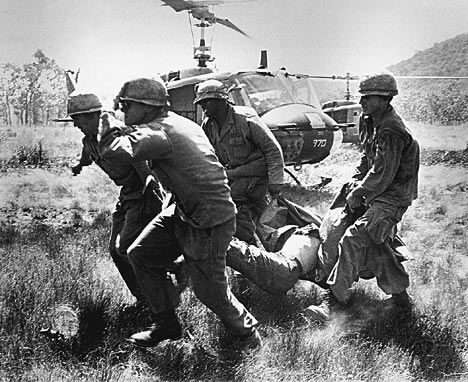The views expressed in our content reflect individual perspectives and do not represent the authoritative views of the Baha'i Faith.
Every word of thy poetry is indeed like unto a mirror in which the evidences of the devotion and love thou cherishest for God and His chosen ones are reflected. Well is it with thee who hast quaffed the choice wine of utterance and partaken of the soft flowing stream of true knowledge. – Baha’u’llah, Tablets of Baha’u’llah, pp. 175-176.
The gift of God to this enlightened age is the knowledge of the oneness of mankind and the fundamental oneness of religion. War shall cease between the nations and by the will of God the most great peace shall come; the world will be seen as a new world and all men will live as brothers. – Abdu’l-Baha, Divine Philosophy, p. 13.
I had waited for years to re-read Waiting For Spring (1978), the small volume of poetry by Richard P. Jones, my poetry mentor at Pacific Lutheran University, back in my college days. After having checked out Waiting For Spring for several weeks, today the book was due back at the library. So I returned this obscure, yet precious, collection of poems to the Squirrel Hill branch of the Carnegie Library of Pittsburgh—but not without writing down one more poem.
Back when I studied with Professor Jones, I had no idea that, one day, I would teach a course on poetry. At Michigan State University, in the spring 2004 semester, I designed and taught a course called “Poetry as Social Commentary.” If you were one of my students, you would have read the following from the course syllabus on the first day of class:
The voice of the social poet is prophetic. Not always right, but always true—true to life through the filter of the poet’s kaleidoscopic eyes and mental prism. The light that comes out of their eyes is refracted with meaning, their vision of what it means to be an American and, more importantly, what it means to be a human, a world citizen. “Let not a man glory in this, that he loves his country. Let him rather glory in this, that he loves his kind.” [Baha’u’llah] These words, spoken by a Persian sage in a Turkish prison in a historic interview with a Cambridge scholar in 1890, says something about the relationship of a nation among nations—and by extension, the relationship of America to the rest of the world.
So now let me take you back to the war in Vietnam. Here is a short poem about the Vietnam War, by my poetry mentor:
A Little War
Richard P. JonesMy brother died
in a little
war
but that’s no matterWe first
received
a telegram
then a
letter
signed by
The President
& a General
we did not
knowThey didn’t
send his
dog tag
some one
said it
was lostIt doesn’t matter
I saw the
stitches
in his throat– Waiting for Spring, p. 33.
 Stark and staccato, this poem is notable not only for what it says, but for what it leaves unsaid. The poem is a silent shriek of grief.
Stark and staccato, this poem is notable not only for what it says, but for what it leaves unsaid. The poem is a silent shriek of grief.
Told matter-of-factly, this terse, laconic and cynical poem reads like a brief, unimportant report. The loss of the poet’s brother is recounted, almost as a statistic. Expected, perhaps. But unacceptable.
“A Little War” brings the Vietnam war home to America. All that remains is for the reader to identify the poet’s dead brother, whose throat was slit (presumably by the Viet Cong, in combat), with countless other casualties, on both sides. The corpse in the poem is nameless. That’s how that body can represent every body (casualty) in the ongoing “body count,” as famously recounted by the poet, Robert Bly:
Counting Small-boned Bodies
Robert BlyLet’s count the bodies over again.
If we could only make the bodies smaller
The size of skulls
We could make a whole plain white with skulls in the moonlight!If we could only make the bodies smaller
Maybe we could get
A whole year’s kill in front of us on a desk!If we could only make the bodies smaller
We could fit
A body into a finger-ring for a keepsake forever.— The Light Around the Body (1967; National Book Award for Poetry, 1968).
When I first heard this poem read at Pacific Lutheran University in 1972, I was shocked, stunned. Bly read several similarly disturbing poems that night. I’ll never forget how half the audience walked out of his poetry reading.
I wrote the following poem on January 23, 1973, when an announcement was made that a cease-fire agreement, known as the “Paris Peace Accords,” was to go into effect at midnight, January 27, 1973, prematurely marking the end of the war in Vietnam. That same night, I wrote this:
January 23, 1973
Christopher BuckIt has been announced that
war in Indochina
will not cease
till Saturday.
But the crowd at the Monday night
crosstown basketball brawl
explodes in applause
at the news
and
bombs the sweat-
steeped structure with
a negotiated moment
of silent prayer
before our true
blue salute to
stars
receded in distant heavens
as blood
spills off the white
flesh of flag
and floods a divided court
with cheers.
Poetry as social commentary? No further comment.
















Comments
Sign in or create an account
Continue with Googleor